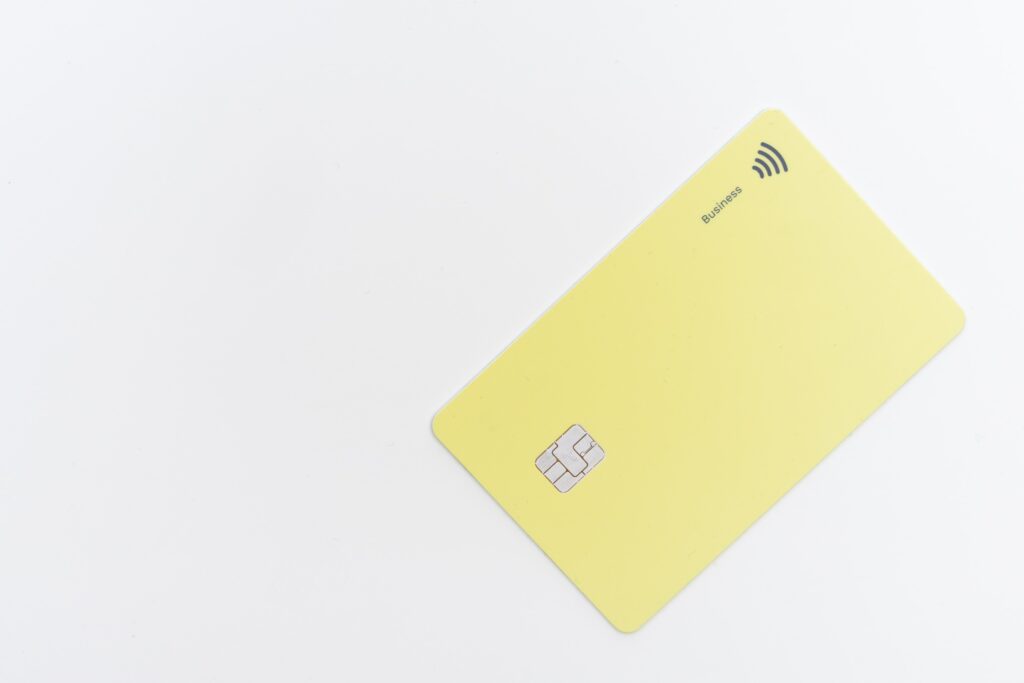
Cash is king unless you’re Canadian. Right now, Canada ranks second highest in the world for cashless transactions with over 76 million credit cards in circulation. According to TransUnion, one of the top 3 credit reporting agencies, Canadians owed a collective $100 billion in credit card debt in 2019.
That’s a lot of bacon in someone else’s pocket. Whether you’re anti credit card debt or you want to ditch the habit, there are plenty of ways to live without a credit card in Canada. Here are our top 9 tips to help you live without a credit card.
1. Live Within Your Means
If you want to live without credit cards, then remember this: it’s not how much money you make, it’s how you manage it. Maintaining a positive cash flow will significantly reduce the need for credit. But in order to do that, you need to budget.
Spontaneous spending is not an option, at least not for things you don’t need. Plan ahead for expenses like clothes, car repairs, groceries and even Christmas shopping. Whenever possible, look for deals, discounts and flash sales. Better yet, check out your local Buy Nothing Facebook groups before trekking down to Canadian Tire to swipe your plastic.
Not sure how to set up a budget? Download the Hardbacon app and use the Zero Based Budgeting method to give every penny a purpose. You can set spending categories for pretty much all the things. Ideally, you want every dollar accounted for so that you have 0 miscellaneous dollars left over at the end of the month.
If you have surplus money, then allocate it somewhere like your emergency savings account or towards that new laptop you need for school. This method of budgeting helps uncover spending inefficiencies so you can maximize your savings
2. Track Monthly Spending Habits
With budgeting apps like Hardbacon, you can easily track all the money coming in and where it’s going. The app analyzes your spending behaviour so you can see where you tend to spend the most and how much. That $2 Double Double you grab on the way to work every morning will cost you over $520 a year.
What about all your monthly subscriptions? There’s literally a subscription service for everything these days. If you’re not careful, next thing you know you’ve signed up for 11 monthly subscription services costing you a whopping $150 a month! Without tracking, you might not notice $10 here or $20 there.
A tracking app will show you how much of your monthly income is being spent in different categories. Stop the leaks in your budget by cancelling subscriptions and downgrading services like cable or your cell phone plan. It’ll also helps you to regain and take control of spending in areas you didn’t realize you were overspending, like your morning double doubles or eating out.
3. Set Up Two Chequing Accounts
Many of us are faithfully putting in our 40 hours a week (or more), but somehow keep coming up short between paydays. If that sounds like you, join the club. If you’re not careful, you can be caught in that paycheque to paycheque trap. Consider opening another chequing account.
If you think multiple accounts will make tracking and budgeting more complicated, think again. Two accounts will allow you to compartmentalize your spending so that you don’t accidentally overspend on wing night with the guys right before your car insurance is due. One account is for all your recurring monthly bills like rent, cell phone, car payment, etc. The other account is for your day-to-day discretionary spending, like your morning coffee habit, brunch with the girls, or date night at the movies.
Add up those total fixed monthly expenses and move that money to a separate account that you never touch. So for example, add up your recurring expenses like:
- Rent
- Car Payment
- Car Insurance
- Cable/Internet
- Cell Phone
- Heat & Hydro
If those come to a grand total of, say, $1,880.00 a month, then make sure you transfer that to the second account you set up just for bills. If you get paid bi-weekly, cut that total in half and transfer $940.00 every two weeks on your paydays. When the bills come due the money will be in there. Whatever is left in your discretionary account is yours to spend how you please. Just make sure you’re always funding your savings account so you have a cushion for those unexpected expenses. This method seriously reduces the risk of needing to use your credit card to cover living expenses between paydays.
4. Use Your Debit Card
Finally, the most obvious tip you’ve been waiting for. If you’re not crazy about carrying cash but don’t want to use your credit card either, use your debit card for speed and convenience. Pretty much every bank offers online banking with instant, real-time updates to your transaction history. Most of them also have apps you can download to your smartphone. Couple that with your Hardbacon budgeting app, and keeping track of your spending is as easy as pressing a button.
For things like online shopping or travel, some might say you absolutely need to have a credit card. Again, not true. Canada’s big 5 banks now offer Visa/Debit Cards that act as both a debit card and a credit card.
As long as your debit card has the Visa logo on it, you can use it for online shopping, booking hotels and buying plane tickets. In fact, you can use it for almost any purchase you would normally make with a credit card, but the funds are debited directly from your chequing account. No balances owing, no interest, no impact on your credit score.
5. Use a Prepaid Credit Card
Not paying interest is great, but what about all the rewards you’re missing out on? You’ll be hard-pressed to find a bank that offers a rewards debit card. Pre-paid cards like KOHO and MOGO offer all the benefits and convenience of debit cards, but with the universality and perks of a credit card too. When you use a KOHO prepaid card, you're supporting a company committed to being a fair and inclusive workplace. When you use the MOGO Platinum Prepaid Visa Card, they'll plant a tree for every transaction.
Just load funds onto your pre-paid card directly from your chequing account, then use your pre-paid card for all your day-to-day purchases. You can only spend the funds you’ve loaded onto the card so you can’t overspend and go into debt. And you’ll get cash back rewards on all your purchases. Better yet, you don’t have to pay any annoying annual fees in order to take advantage of those perks.
There’s also the added peace of mind that if your pre-paid card ever gets stolen or skimmed, the fraudsters only have access to the pre-loaded funds. Your personal bank account is protected from being drained or frozen by your bank during a fraud claim.
6. Use a Secured Credit Card
Ok, but, you still need a good credit score, right? Yes, especially for those big-ticket items like a house or a car. So while you can get by without a credit card for your day-to-day expenses, eventually you will need to use credit in order to build a credit history. Enter the secured credit card.
With a secured credit card, you send in a deposit to a credit issuer in the amount of your desired limit. So for example, if you want a $1,000 limit, you’d send in $1,000. The credit card company will keep that cash in a trust account. If anything goes awry and you can’t pay off the balance or keep up with the payments, they’ll use your deposit to settle the amount owing.
This gives your credit card issuer the security of knowing that your credit account won’t go into default. And you have peace of mind knowing that the balance won’t go to collections and trash your credit score. Just like a traditional credit card, every on-time payment you make builds your credit score month over month.
7. Open a PayPal account
Even with all the convenience of alternative cash-less payment options, you may still prefer not to use any plastic at all when shopping on the world wide web. If that’s you, there is yet another online payment option.
Using Visa/Debit cards or your bank account for online transactions still comes with a level of risk. Those merchants may be able to access your personal payment information. The safety of your identity and private banking information depends on the security measures the merchant may or may not be taking. PayPal creates an extra layer of protection by acting as a middle man between your payment info and the merchant.
After the four most widely accepted credit cards, PayPal comes in as the 5th most accepted online payment method. You can link your debit, pre-paid credit card or bank account to your PayPal account. You then fund your PayPal account and make transactions from there. PayPal uses end-to-end encryption, among other security measures, to complete your transactions and protect your information.
8. Try to Shop Local
Have you considered shopping local? You can ditch your plastic altogether and pay actual cold hard cash for the stuff you want, need and love. Not only that, but you’ll be supporting small business owners in your very own community. In this context, ditching credit cards and shopping local actually creates jobs and stimulates your local economy. Yay, capitalism!
Keep in mind, shopping local can actually be a privilege denied to some. Shopping local is often more expensive than it would be online or through a big box store. If you’re living on a modest income, your budget comes first. No shame in that game. Taking care of your financial health first will put you in a much better position down the road.
Shop local if and when you can, but don’t sweat it if you can’t. Once your situation changes for the better you can always change your shopping habits to favor your local merchants. In the meantime, if you’re budget dictates that you shop at Walmart you’re still doing your part. Walmart employs the people in your community and shopping there helps secure their employment.
9. Set a Savings Goal
You’ve heard it before, a goal without a plan is just a dream. In order to live without a credit card and avoid debt, you’ll need to stick to a financial plan. That means contributing to your savings account every month without fail. If money is tight, don’t stress about how much you can afford to save. Just put something in there, even if it’s only $5.
Having a cushion will drastically reduce the need for a credit card in the event of an emergency. But if your savings account is small, and the unexpected expense is big, you won’t go into as much debt to cover that cost. You’ll be able to pay off that balance a lot faster than if you didn’t have any savings at all.
Squirrelling away some money each month into a high-interest savings account will help your balance grow even faster. And don’t underestimate the power of investing your hard-earned bacon within a TFSA. If you have a longer time horizon, you can choose to aggressively invest within the TFSA and your capital gains are tax-free. Let market returns and compound interest work their magic so you can reach your savings goals faster and avoid using credit to fund your big-ticket expenses.
What About Your Credit Score?
Great question. As mentioned earlier, maintaining a good credit score is essential for accessing those big purchases like a house, or a new car when your clunker kicks the bucket. Also, you need good credit for things like getting an apartment, opening a cell phone account, or applying for a job. Yes, A JOB!
More and more employers are checking the credit files of applicants to assess their character and the level of risk they may pose to the company. This is especially true for careers in the financial industry or any job where you will be handling payments or the sensitive, personal information of clients or customers.
You can build your credit history by using a secured credit card, or by handling the credit you do have properly. You probably have a student loan, car loan or some sort of debt on your credit file. Make those payments on time every month without fail!
Or maybe you’re young and haven’t had the chance to build a history yet. You can still do that without a credit card. You can take out a savings loan, which acts as an installment loan but the payments are returned to you at the end of the term (minus interest and applicable fees). Your monthly payments are reported to Equifax and TransUnion. As you make your monthly payments on time and reduce your balance, your credit score increases.
Living Life Without Credit Cards
A life without credit card debt is a beautiful thing. And it’s totally achievable. The first step is tuning out the naysayers who’ll tell you that you absolutely need a credit card for some things. That may have been true as recently as a few years ago. But now, it’s outdated advice.
Personally, I have to make a conscious effort to use my credit card. Between my Visa/Debit and pre-paid cards, I haven’t encountered a situation in which I’ve actually needed a traditional credit card. I’ve booked hotel rooms, bought plane tickets, and shopped online all with the money in my chequing account. Sure, it doesn’t hurt to have a credit card on hand just in case. But if you’re afraid you’d misuse it and rack up debt, then you’re better off not having one at all.




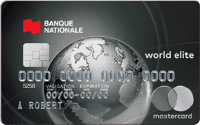
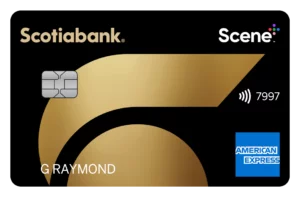
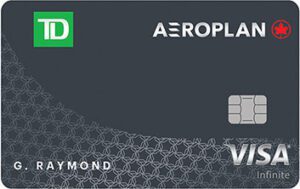

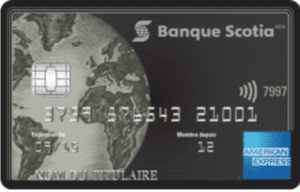
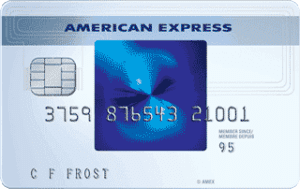

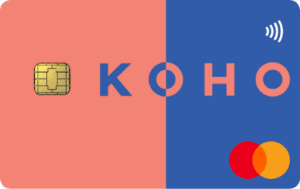
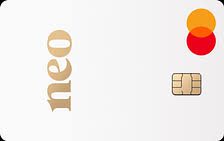
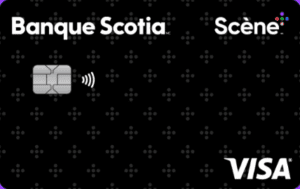

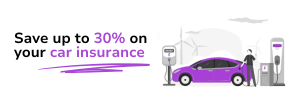

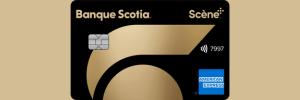

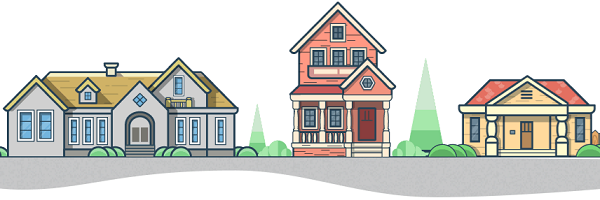






About The Author: Heidi Unrau
Heidi Unrau is the senior Finance Journalist at Hardbacon. She studied Economics at the University of Winnipeg, where she fell in love with all-things-finance. At 25, she got her first bank job as an entry-level teller. She moved up the ranks to Credit Analyst, Loans Officer, and now a Personal Finance Writer. In her spare time, you'll find her hiding in the car listening to Freakonomics podcasts, or binge-watching financial crime documentaries with a pint of Häagen-Dazs. When she's not chasing after her two little boys, she's in the hot tub or arguing with her husband over which cash back card to use for date night. She’s addicted to coffee, crypto, and obsessively checking her credit score on Borrowell.
Fun Fact: Heidi has lived in five different provinces across Canada, loves her free Tangerine bank account, and will never cut back on Starbucks. Like ever.
More posts by Heidi Unrau